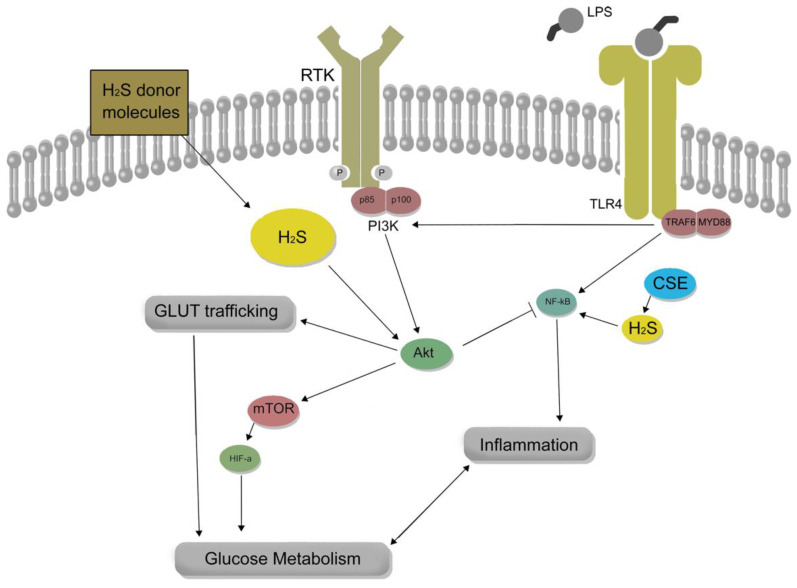Figure 3.
The role of hydrogen sulfide (H2S) in macrophage inflammation and glucose metabolism is complex and context-dependent. H2S donor molecules can enhance lipopolysaccharide (LPS)-induced Akt activity, which may counteract pro-inflammatory NF-κB activity. Conversely, cystathionine-γ-lyase (CSE)-derived H2S supports NF-κB pro-inflammatory activity, leading to the expression of glucose transporter 1 (Glut1) and metabolic reprogramming in macrophages during inflammation. The impact of H2S on macrophage inflammation, therefore, depends on factors such as the source, concentration, and context of H2S exposure, which can result in either pro- or anti-inflammatory outcomes.

